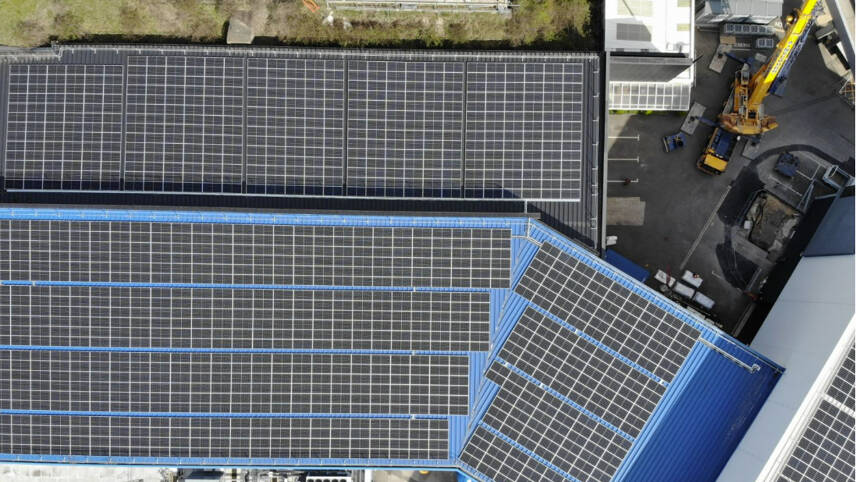Register for free and continue reading
Join our growing army of changemakers and get unlimited access to our premium content

Image: UKRI
The Council, which is overseen by UK Research and Innovation (UKRI), operates the UK’s network of National Science and Innovation Campuses – hubs where collaboration between academics and the public and private sectors are enabled to help bring new innovations to market. Environmental sciences and the energy transition are a key focus for those working at the Campuses, along with medicine and materials innovation.
Oxfordshire and Cheshire play host to the UK’s two largest National Science and Innovation Campuses. Across both of these campuses, the Council is planning to fit more than 1,200 rooftop and ground-mounted solar panels.
At the Rutherford Appleton Lab in Oxfordshire, the Council is planning to install 8,000 solar panels which it predicts will generate 3,450MWh of electricity annually. At Daresbury Lab in Cheshire, 4,200 solar panels have been installed and are set to generate 1,200 MWh of electricity each year.
The Council is forecasting potential energy bill savings of more than £700,000 across both Labs as a result of the on-site solar generation. It is also hoping to mitigate 980 tonnes of Scope 2 (power-related) emissions annually through the arrays.
As well as generating energy for use in Lab buildings, both arrays will provide electricity for electric vehicle (EV) charging ports.
The installation of the solar panels and the EV ports by the Council has been enabled with £6m of funding from the UK Government’s Public Sector Decarbonisation Scheme. The Scheme has a total funding pot of £1.4bn, set to be allocated through to 2025. As well as supporting on-site generation and transport electrification, public sector bodies can claim for activities that improve energy efficiency and decarbonise heating.
The Science and Technology Facilities Council’s executive chair, Professor Mark Thompson, said: “Our facilities are unique and our infrastructure is complex.
“To utilise our impressive experiments and facilities to achieve world-leading science, the energy requirements are very large. We have had to seek out novel but attainable solutions to make real and lasting progress towards net-zero.”
Mission Positive: To net-zero and beyond in the public sector
The public sector represents a critical piece of the UK’s net-zero puzzle. From local government to hospitals, schools and social housing providers – a significant amount of investment and work is required to cut emissions and embrace clean technologies. But beyond simply ‘reducing’, public sector organisations also have a key role to play in enhancing the environmental and social sustainability of the communities they serve.
With this in mind, edie and Centrica Business Solutions recently published a report charting progress towards net-zero in the UK’s public sector, outlining case studies and key challenges and opportunities. The report is free to download.
It uses exclusive results from edie’s sustainability leadership survey of more than 250 sustainability and energy professionals. It has also been produced with guidance from in-depth discussions with a steering panel of sustainability experts from some of the world’s most respected public sector firms in the vanguard of sustainability leadership, featuring representatives from councils and the NHS
Click here to download your copy of the report.


Please login or Register to leave a comment.